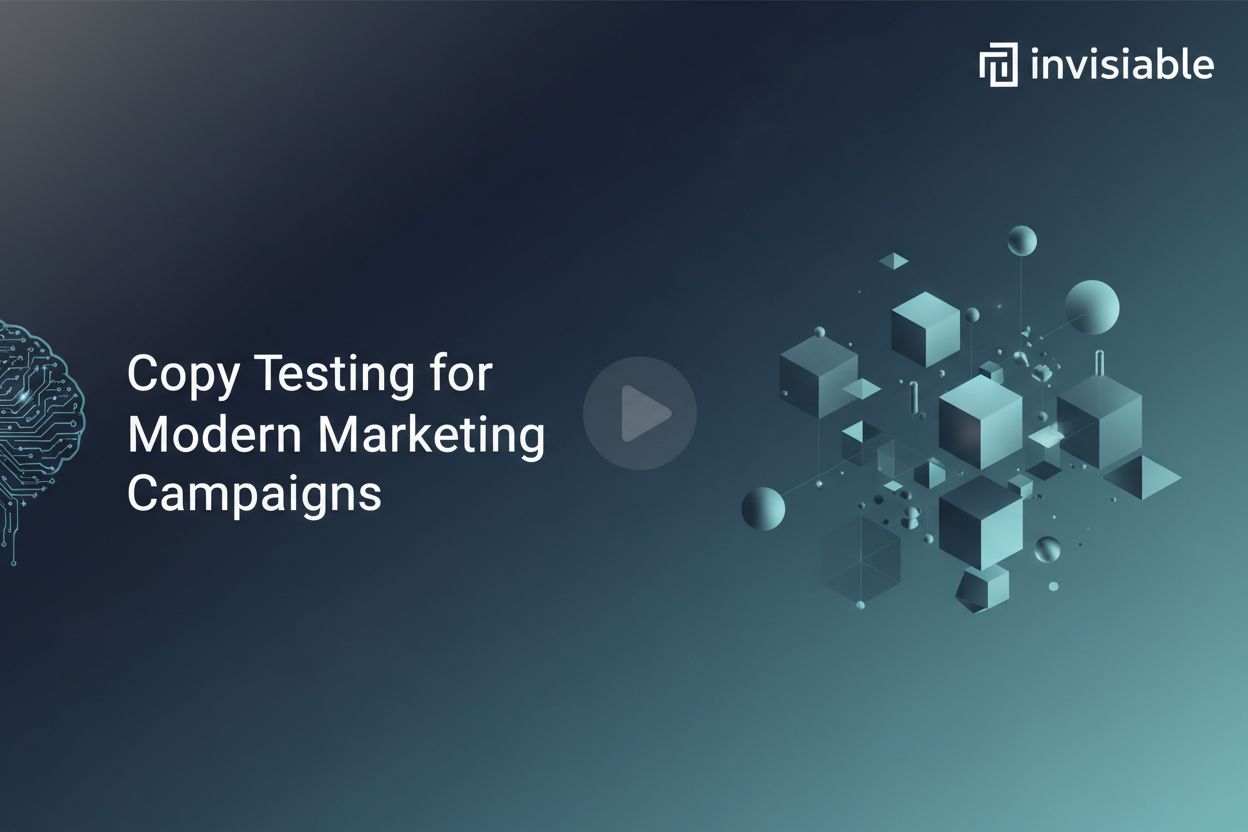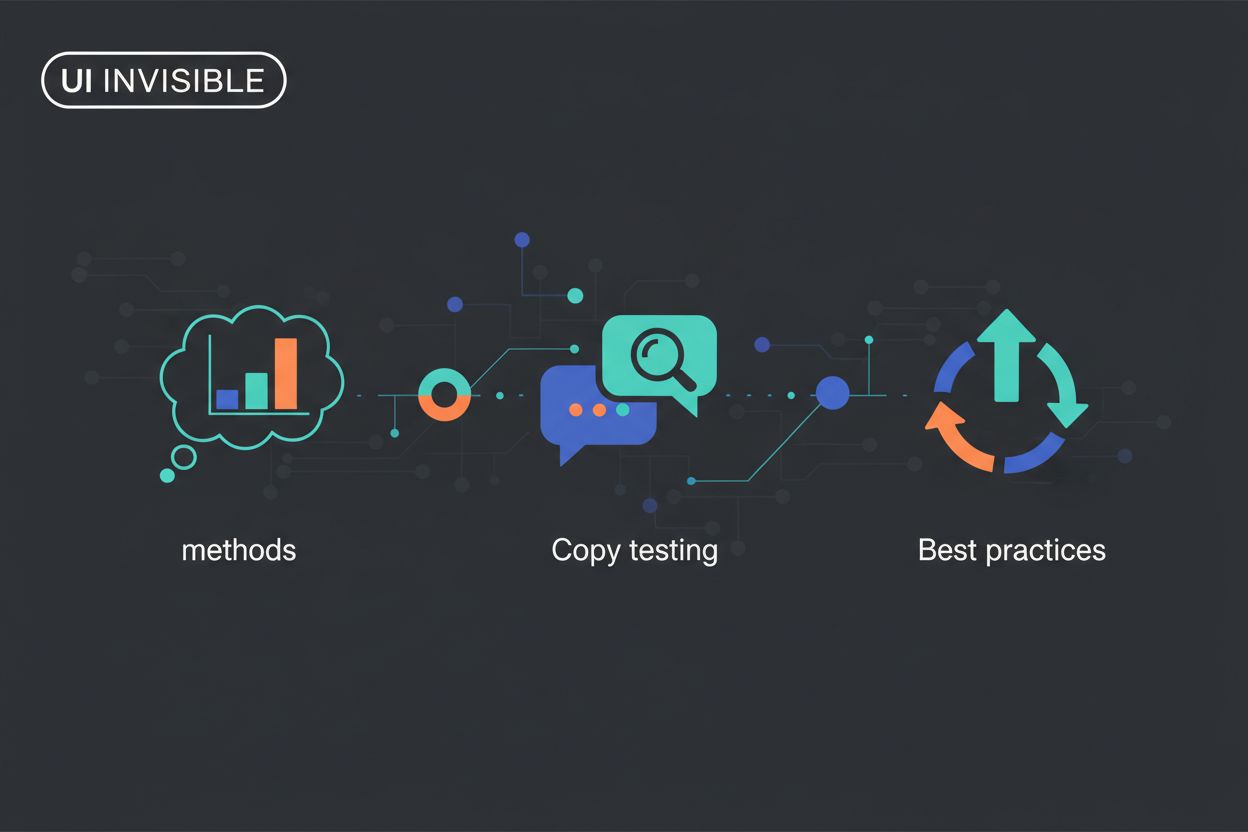Unlocking Creativity: How Generative AI Fuels Idea Generation for Marketers
Introduction: The Rise of AI-Powered Creativity
Imagine a world where creative blocks are a thing of the past. Generative AI is rapidly changing the marketing landscape, offering exciting new ways to fuel idea generation.
Marketers often struggle to consistently generate fresh, innovative ideas. (Why 45% Of Marketers Struggle To Attract Quality Leads - Penfriend.ai) The demand for engaging content across various channels – social media, blogs, email campaigns – is relentless. (Email Marketing - What Is It and How Does It Work?) This constant pressure, coupled with time constraints and limited resources, can stifle creativity.
- Marketers face immense pressure to produce novel campaigns and content that break through the noise. ((PDF) Content marketing is a strategic marketing approach ...)
- Creating content for diverse platforms like Instagram, LinkedIn, and TikTok requires constant adaptation and fresh concepts.
- Smaller marketing teams often lack the bandwidth to dedicate sufficient time to brainstorming and creative exploration.
Generative AI refers to artificial intelligence algorithms capable of creating new content, from text and images to audio and video. Instead of replacing human creativity, AI tools can augment the brainstorming process, helping marketers explore uncharted territories of concept development. According to Generative AI for Everyone, understanding how generative ai works puts you in the driver’s seat.
- Generative AI algorithms can analyze vast datasets to identify patterns and suggest novel ideas that humans might overlook.
- AI tools can quickly generate variations of existing concepts, sparking new directions for campaigns.
- As Generative AI for Everyone highlights, these technologies offer hands-on exercises, where you’ll learn to use generative ai to help in day-to-day work and receive tips on effective prompt engineering, as well as learning how to go beyond prompting for more advanced uses of ai.
Embracing generative ai can lead to increased efficiency, a broader range of creative concepts, and data-driven insights.
- Ai can automate time-consuming tasks like initial content drafting, freeing up marketers to focus on strategy and refinement.
- Generative ai can help explore a wider range of ideas, including those outside of a marketer's typical frame of reference.
- Ai algorithms can analyze campaign data to predict which concepts are most likely to resonate with target audiences, leading to more effective campaigns.
The rise of ai-powered creativity is undeniable, promising to reshape how marketers ideate and create.
Generative AI Tools: A Marketer's Idea Generation Arsenal
Did you know that ai can write a blog post in seconds? Generative ai tools are rapidly changing how marketers approach content creation, offering a range of solutions to boost idea generation.
Text-Based Content Creation
Ai writing assistants are revolutionizing content creation by offering features like generating blog topics, creating outlines, and drafting content. These tools save time and provide a starting point for marketers to refine and customize.
- Blog Post Creation: Ai can analyze trending topics and generate blog post ideas tailored to specific audiences. For example, a healthcare company could use ai to generate content on "The Future of Telemedicine" or "Managing Stress in a Digital Age."
- Email Marketing: Ai can craft compelling email subject lines that increase open rates and write body copy that resonates with subscribers. A retail business could use ai to personalize promotional emails based on customer purchase history.
Popular tools in this category include GPT-3, Jasper, and Copy.ai. These platforms use advanced natural language processing to generate high-quality text.
Visual Content Creation
Visual content is crucial for engaging audiences. Ai-powered image generators and video creation tools offer innovative ways to produce unique visuals for social media, ads, and more.
- Image Generation: Ai can create original images based on text prompts, offering a virtually limitless supply of visuals for social media and advertising campaigns. A finance company could use ai to generate abstract images representing concepts like "financial growth" or "investment security."
- Video Creation: Ai video creation tools can take text prompts or existing scripts and generate entire video clips, complete with realistic avatars, voiceovers, and backgrounds. This significantly speeds up video production for marketing purposes. Synthesia, for instance, is a leading ai video generation platform that allows users to create professional-looking videos from text. You simply type your script, choose an avatar and voice, and Synthesia generates a video, making it incredibly accessible for marketers who don't have video editing expertise.
Tools like DALL-E 2, Midjourney, and Synthesia are at the forefront of this visual revolution. These platforms enable marketers to create visually stunning content without extensive design or video production experience.
Audio Content Creation
Audio content, such as podcasts and voiceovers, is another area where ai is making significant strides. Ai tools can help generate podcast topics, write scripts, and even produce voiceovers.
- Podcast Content: Ai can analyze trending topics and generate podcast episode ideas, as well as draft scripts or outlines for each episode. A marketing agency could use ai to brainstorm podcast topics related to digital marketing trends or social media strategies.
- Voiceovers and Audio Editing: Ai can generate realistic voiceovers for videos and other audio content, as well as assist with audio editing tasks. This can be particularly useful for creating audio ads or educational content.
Tools like Murf.ai and Descript are transforming audio content creation. These platforms offer features like text-to-speech, voice cloning, and automated audio editing.
As marketers continue to seek innovative ways to enhance their content strategies, generative ai tools provide a powerful arsenal for boosting creativity and efficiency.
Practical Applications: AI-Powered Idea Generation in Action
Did you know that ai can function as your personal SEO strategist? Let's explore how generative ai can revolutionize marketing by diving into practical applications across SEO, social media, and email campaigns.
Search Engine Optimization (SEO)
- Using AI to identify trending topics and long-tail keywords. Generative ai can analyze search engine data and social media trends to uncover emerging topics and niche keywords. This helps marketers create content that aligns with current user interests and search behavior, driving organic traffic.
- Generating content ideas based on search intent and competitor analysis. Ai tools can assess the search intent behind specific keywords and analyze competitor content to identify gaps and opportunities. For example, a cloud storage provider could use ai to identify long-tail keywords related to "secure file sharing for remote teams" and create content addressing those specific needs.
- Tools for SEO content optimization powered by AI. Ai-powered SEO tools can assist with tasks such as suggesting optimal keyword placement, generating meta descriptions, and analyzing content readability. These tools help ensure that content is not only engaging but also optimized for search engine algorithms.
Social Media Marketing
- Generating social media post ideas based on audience interests and platform trends. Ai can analyze audience demographics, interests, and behavior on social media platforms to generate relevant content ideas. For instance, a beauty brand could use ai to identify trending makeup looks on TikTok and create tutorial videos showcasing those trends.
- Using AI to create catchy captions and hashtags. Ai tools can generate creative and attention-grabbing captions and suggest relevant hashtags to increase the visibility of social media posts. A travel company could use ai to craft engaging captions for Instagram photos of exotic destinations, incorporating trending travel hashtags.
- Examples of successful AI-driven social media campaigns. Many organizations are using ai to personalize content and automate posting schedules on social media, resulting in increased engagement and brand awareness. For example, Netflix has been known to use ai to analyze viewer data and tailor promotional content and social media posts to specific audience segments, leading to higher engagement rates for their shows. Another example is Spotify, which uses ai to curate personalized playlists and recommendations, then leverages this data to create engaging social media content that highlights these personalized experiences for users.
Email Marketing
- Using AI to generate personalized email subject lines and content based on customer data. Generative ai can analyze customer data, such as purchase history and browsing behavior, to create personalized email subject lines and content. A retail business could use ai to generate email subject lines like "Exclusive Deals Just for You, [Customer Name]!"
- Creating targeted email sequences for different customer segments. Ai can segment email lists based on customer attributes and create targeted email sequences tailored to each segment. A financial services company could create separate email sequences for new customers, high-value customers, and inactive customers, each addressing their specific needs and interests.
- AI-powered A/B testing for email optimization. Ai can automate A/B testing of email elements such as subject lines, body copy, and calls to action to identify the most effective combinations. This ensures that email campaigns are continuously optimized for maximum engagement and conversion rates.
By leveraging ai across these key marketing areas, organizations can enhance their efficiency and effectiveness.
Workflow Integration: Seamlessly Incorporating AI into Your Process
Ready to weave ai into your daily marketing grind? It's not just about having the tools, but knowing how to use them effectively within your existing workflows.
Integrating ai into your idea generation process requires a strategic approach. Here's how to get started:
- Defining your marketing goals and target audience. Start by clearly outlining what you want to achieve with your marketing efforts. Then, define your ideal customer. This will help you focus your ai-powered idea generation on relevant and impactful concepts. For example, a non-profit aiming to increase donations would use ai to generate content highlighting their impact on specific communities.
- Identifying the right AI tools for your specific needs. Not all ai tools are created equal. Research and identify the tools that align with your goals and the type of content you want to create. A retail company looking to boost social media engagement might focus on ai-powered image and video generators, while a B2B tech firm might prioritize ai writing assistants for blog posts and whitepapers.
- Training your team on how to effectively use AI for idea generation. Provide your team with the necessary training and resources to leverage ai tools effectively. This includes understanding prompt engineering, evaluating ai-generated content, and integrating ai into their existing workflows. Consider workshops, online courses, or even dedicated ai champions within the team. Training should cover not just prompt engineering, but also critical evaluation of AI output, understanding the ethical implications of AI use, and how to creatively combine AI-generated elements with human insight.
The key to unlocking ai's creative potential lies in effective prompt engineering. Think of prompts as the instructions you give to ai.
- Crafting effective prompts to guide AI towards desired outputs. A well-crafted prompt provides context, specifies the desired format, and sets the tone for the ai-generated content. For example, instead of simply asking "Write a blog post about ai," try "Write a 500-word blog post about the benefits of ai in healthcare marketing, targeting marketing managers with a professional yet engaging tone."
- Iterating on prompts to refine results and achieve optimal creativity. Don't expect perfection on the first try. Experiment with different prompts, analyze the ai's output, and refine your prompts based on the results. This iterative process will help you fine-tune the ai's creativity and generate truly innovative ideas.
- Best practices for prompt engineering in different marketing contexts. Different marketing contexts require different prompt engineering approaches. For social media, focus on concise and attention-grabbing prompts. For blog posts, provide detailed instructions and keywords. For email campaigns, emphasize personalization and call-to-action.
By integrating ai strategically and mastering prompt engineering, you can unlock a new era of creativity and efficiency.
Overcoming Challenges: Addressing the Limitations of Generative AI
Can generative ai replace human marketers? Not quite. While these tools offer incredible potential, understanding their limitations is crucial for maintaining originality, ethics, and genuine human connection.
Avoiding reliance on AI-generated content that lacks unique insights: Over-dependence on ai can lead to homogenized content that doesn't stand out. For example, an ai might generate a standard blog post about "5 Tips for Saving Money," but it may lack the unique personal anecdotes or expert advice that a human writer could provide.
Adding human expertise and creativity to AI outputs: Ai-generated content should be viewed as a starting point, not the final product. A marketing team for a retail company could use ai to draft product descriptions, but then add compelling storytelling and brand-specific language to make them more engaging.
Strategies for differentiating your content in a crowded marketplace: To avoid generic content, marketers should focus on niche topics, incorporate original research, and add unique perspectives that ai cannot replicate. A financial services firm, for instance, could use ai to analyze market trends, but then create thought leadership pieces based on their own proprietary data and insights.
Addressing potential biases in AI algorithms and datasets: Ai models are trained on data, and if that data reflects existing societal biases, the ai will perpetuate those biases. For example, an ai trained on predominantly male-written marketing materials might inadvertently generate content that is less appealing to female audiences.
Fact-checking and verifying AI-generated information: Always double-check the accuracy of ai-generated content before publishing. An ai might confidently state inaccurate statistics or make false claims about a product or service.
Promoting responsible and ethical use of AI in marketing: Marketers have a responsibility to use ai ethically and transparently. This includes disclosing when ai has been used to generate content and ensuring that ai is not used to deceive or manipulate consumers.
Ai models are only as good as the data they are trained on.
- Balancing AI assistance with human creativity and emotional intelligence: Ai can assist with tasks like data analysis and content drafting, but it cannot replace the human ability to understand and respond to emotions.
- Maintaining a genuine voice and brand identity: A healthcare organization, for example, might use ai to generate initial drafts of patient education materials, but a human writer should then review and revise the content to ensure it is empathetic, compassionate, and aligned with the organization's brand values.
- Building authentic connections with your audience: Ai can help personalize marketing messages, but genuine connection requires human interaction and understanding. A non-profit organization, for instance, might use ai to segment its email list, but should still rely on human staff to personally respond to inquiries and build relationships with donors.
While generative ai offers tremendous potential for marketers, it's crucial to recognize its limitations and maintain a focus on originality, ethics, and human connection.
Future Trends: The Evolution of AI in Marketing Idea Generation
Ai's future in marketing involves personalized experiences, human-ai collaboration, and ethical considerations. Let's explore how these trends are shaping the industry.
- AI-Powered Personalization: Expect ai to move beyond basic personalization to hyper-personalization, where every piece of content, from ad copy to email subject lines, is tailored to an individual's real-time behavior and preferences. This will build much stronger customer relationships and significantly boost conversion rates. Imagine an e-commerce site that dynamically changes its homepage content based on what you browsed just moments ago.
- AI-Human Collaboration: The future isn't about ai replacing humans, but about them working together. We'll see more sophisticated workflows where ai handles the heavy lifting of data analysis and initial content generation, freeing up marketers to focus on strategy, creative direction, and adding that crucial human touch. Think of ai as a super-powered brainstorming partner that never gets tired.
- Ethical AI: As ai becomes more integrated, there will be a greater emphasis on transparency and accountability. Consumers will expect to know when ai is being used, and businesses will need to ensure their ai systems are fair, unbiased, and secure. This will build trust and ensure ai is used for good, benefiting both businesses and consumers.
As ai evolves, responsible implementation is key. Now, let's wrap up with a summary.
Conclusion: Embracing the AI Revolution in Marketing Creativity
The ai revolution is here, transforming marketing creativity as we know it. Now is the time to dive in and explore the possibilities.
- Ai enhances efficiency by automating routine tasks, freeing marketers to focus on strategy.
- It boosts creativity by generating a wider range of ideas, including those outside traditional thinking.
- Ai improves effectiveness through data-driven insights, predicting which concepts resonate best.
Ready to take the plunge?
- Start experimenting with ai tools to discover how they can enhance your creative processes.
- Explore resources like online courses to deepen your understanding of generative ai.
- Foster a culture of innovation within your marketing team, encouraging adaptation and learning.
The future of marketing is inextricably linked to ai. Embrace this revolution and shape the future of the industry!





